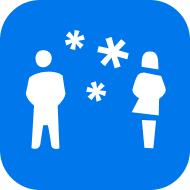Withdrawing. Overwhelmed. Falling Behind.
When Waiting Stops Working, Synapse Can Help.
Structured, clinically supervised, practical support for young people aged 11-25.
When everyday life isn't improving Synapse helps young people stabilise what's difficult now. And gives them the coping skills to handle what comes next.
Delivered one-to-one by trained relatable Coaches.
When everyday life isn't improving Synapse helps young people stabilise what's difficult now. And gives them the coping skills to handle what comes next.
Delivered one-to-one by trained relatable Coaches.
















